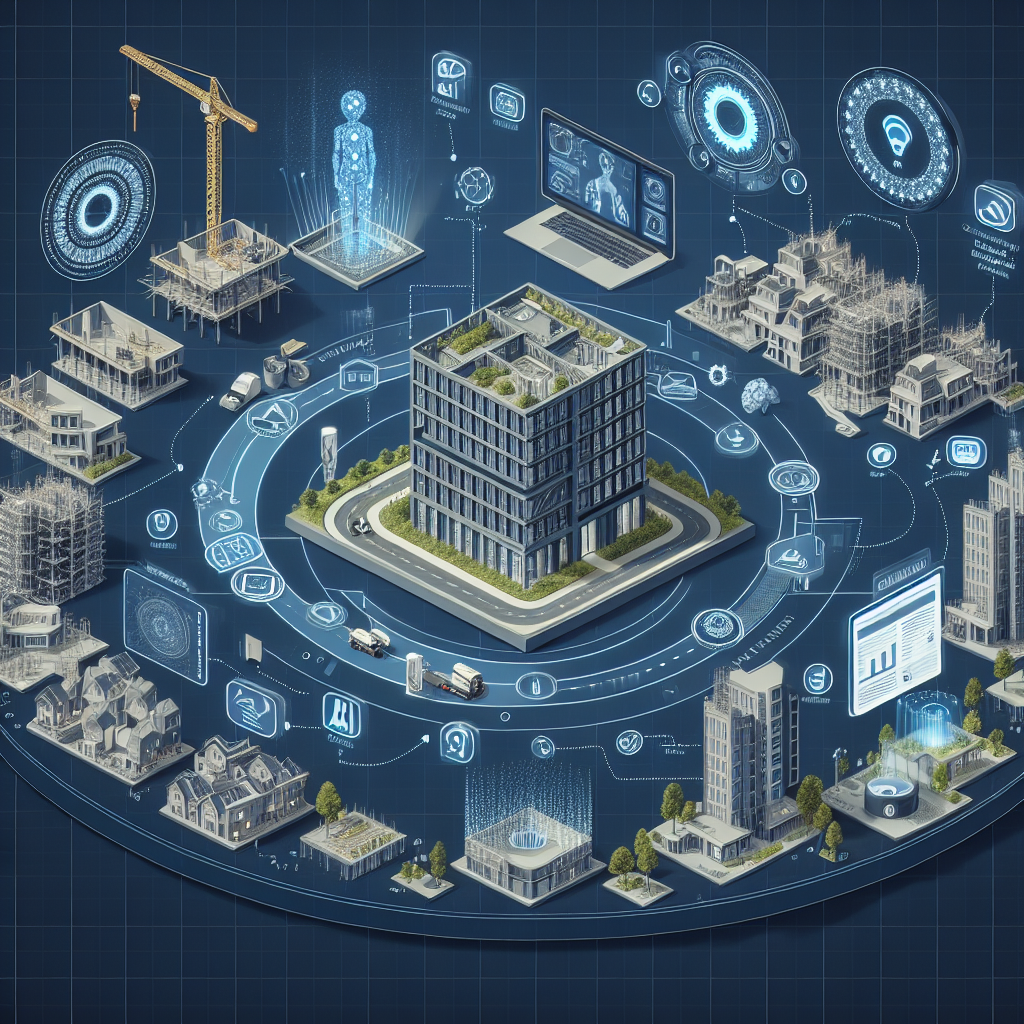Integrating AI into the Building Life Cycle
Artificial Intelligence (AI) has been making significant strides in various industries, and the construction sector is no exception. The integration of AI into the building life cycle has the potential to revolutionize the way buildings are designed, constructed, and operated. By leveraging AI technologies, construction companies can improve efficiency, reduce costs, and enhance the overall quality of their projects. In this article, we will explore the benefits of integrating AI into the building life cycle, as well as some of the challenges and considerations that come with it.
Benefits of Integrating AI into the Building Life Cycle
1. Enhanced Design and Planning
AI technologies can analyze vast amounts of data and generate insights that can help architects and engineers optimize building designs. For example, AI can analyze historical data on building performance to identify patterns and trends that can inform design decisions. AI can also help optimize building layouts to maximize natural lighting, ventilation, and energy efficiency. By leveraging AI in the design phase, construction companies can create buildings that are more sustainable, functional, and cost-effective.
2. Improved Project Management
AI can streamline project management processes by automating tasks such as scheduling, budgeting, and resource allocation. AI-powered project management tools can provide real-time insights into project progress, identify potential delays or bottlenecks, and suggest solutions to mitigate risks. By using AI to manage construction projects, companies can improve efficiency, reduce costs, and deliver projects on time and within budget.
3. Increased Safety
Safety is a top priority in the construction industry, and AI can help improve safety on construction sites. AI-powered sensors and cameras can monitor workers and equipment in real-time, identify potential safety hazards, and alert supervisors to take corrective action. AI can also analyze data on past safety incidents to identify trends and patterns that can help prevent future accidents. By integrating AI into safety protocols, construction companies can create safer work environments for their employees.
4. Predictive Maintenance
AI can help optimize building operations by predicting maintenance needs before they occur. By analyzing data from sensors and monitoring systems, AI can identify patterns that indicate potential equipment failures or maintenance issues. This allows building operators to proactively address maintenance needs, minimize downtime, and extend the lifespan of building systems. Predictive maintenance can also help reduce operating costs and improve energy efficiency by ensuring that building systems are operating at peak performance.
Challenges and Considerations
While the benefits of integrating AI into the building life cycle are significant, there are also challenges and considerations that construction companies need to keep in mind. Some of the key challenges include:
1. Data Quality and Accessibility
AI algorithms rely on high-quality data to generate accurate insights and predictions. Construction companies need to ensure that they have access to reliable data sources and that the data is accurate, up-to-date, and relevant to their projects. This may require investing in data collection and management systems, as well as training employees on data best practices.
2. Integration with Existing Systems
Integrating AI technologies into existing workflows and systems can be a complex process. Construction companies need to consider how AI tools will interact with their current software, processes, and infrastructure. This may require customizing AI solutions to fit the specific needs of the organization, as well as training employees on how to use the new technologies effectively.
3. Security and Privacy
AI technologies rely on vast amounts of data, which raises concerns about security and privacy. Construction companies need to ensure that sensitive data is protected from unauthorized access, breaches, and cyberattacks. This may require implementing robust security measures, such as encryption, access controls, and regular security audits.
4. Skills and Training
AI technologies require specialized skills and expertise to implement and operate effectively. Construction companies need to invest in training programs to ensure that employees have the knowledge and skills to work with AI tools. This may involve hiring data scientists, AI specialists, and other professionals with AI expertise, as well as providing ongoing training and development opportunities for existing employees.
FAQs
Q: How can AI improve building sustainability?
A: AI can analyze data on building performance, energy usage, and environmental impact to identify opportunities for improving sustainability. By optimizing building designs, operations, and maintenance, AI can help reduce energy consumption, minimize waste, and lower carbon emissions.
Q: What are some examples of AI applications in the construction industry?
A: Some examples of AI applications in construction include predictive maintenance, project management, safety monitoring, and design optimization. AI technologies such as machine learning, natural language processing, and computer vision are being used to automate tasks, analyze data, and generate insights that can improve efficiency and quality in construction projects.
Q: How can construction companies get started with integrating AI into their projects?
A: Construction companies can start by identifying specific areas where AI technologies can add value, such as design optimization, project management, or safety monitoring. They can then explore AI solutions that are tailored to their needs, pilot test the technologies on a small scale, and gradually scale up their AI initiatives as they gain experience and expertise.
In conclusion, integrating AI into the building life cycle has the potential to transform the construction industry by improving efficiency, reducing costs, and enhancing the quality of projects. By leveraging AI technologies in design, planning, project management, safety, and maintenance, construction companies can create buildings that are more sustainable, safe, and cost-effective. While there are challenges and considerations to navigate, the benefits of integrating AI into the building life cycle are significant, and companies that embrace AI technologies are poised to gain a competitive edge in the industry.

